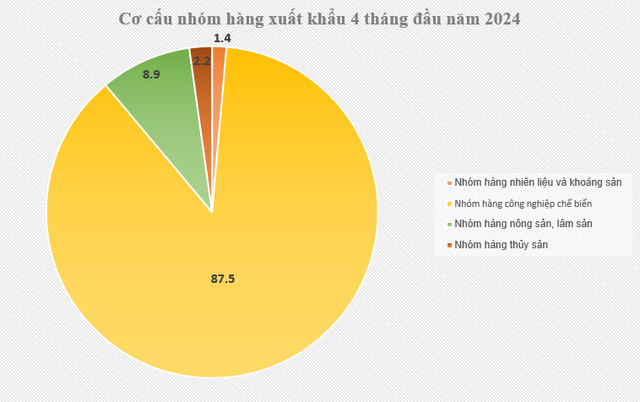After careful consideration of the savings interest rates of several banks, Li Yuan decided to deposit 200,000 Chinese yuan (27,800 USD) into a local small bank to ensure a 3.2% interest rate per annum for 3 years. This is the second year that this single mother from Hubei province has deposited all her savings into a bank instead of investing.
JUST WANT TO ENSURE NO LOSS
Li’s decision to deposit money into this traditional savings channel is mainly due to the sluggish economic recovery in China after the Covid-19 pandemic.
“I started planning my savings for my son last year,” Li shared. “Depositing money into the bank may not have a high interest rate, but at least it has stable returns. The real estate market is very bad, the stock market is the same. Even asset management products do not guarantee positive returns.”
As the owner of a small business, Li considers herself lucky to have survived the pandemic. She is one of the millions of middle-class people in China who are struggling to find low-risk investment channels.
According to the South China Morning Post, the real estate and stock markets – the two most popular investment channels for wealth creation in China – are no longer as safe as before. Therefore, low-risk investment channels such as bank savings, gold, life insurance, etc., are becoming more popular.

The CSI 300 index of China, which tracks the top 300 companies on the Shanghai and Shenzhen stock exchanges, has fallen 38% since January 2021 and hit a 5-year low last week. As for the real estate market, housing prices in 70 major Chinese cities in December experienced the fastest decline in nearly 9 years, according to the latest data from the National Bureau of Statistics of China. Total real estate sales area in China in 2023 decreased by 8.5% compared to the previous year, while sales volume decreased by 6.5%.
According to Evelyn Xu, an asset management specialist at a branch of Jiangsu Bank in Hangzhou, Zhejiang Province, even though the central bank has lowered interest rates several times last year, many people are still particularly interested in depositing savings into the bank.
“Many customers have withdrawn money from private bank products and deposited money into 3-year fixed-term savings. As for those who are investing in asset management products, instead of choosing an annual rate of return, they now just want to ensure no loss. Previously, the annual rate of return for these products could be as high as 5%,” she said.
Last summer, there were even people from other provinces coming to the Industrial and Commercial Bank of Yangzhou to deposit into 3-year fixed-term savings with an interest rate of 3.3% at that time.
Although saving money is also a popular traditional channel, in 2022, the amount of new deposits by households in China has surged, surpassing the previous decade’s peaks, according to data from the People’s Bank of China (PBOC).
In 2022, the new deposits of households reached a total of 17.9 trillion Chinese yuan (equivalent to 2.5 trillion USD), an increase of 8 trillion Chinese yuan compared to the previous year. Last year, this figure remained high at around 16.67 trillion Chinese yuan.
INVESTORS NEED TO BE MORE PATIENT AND INDEPENDENT THINKING
In addition to depositing money into the bank, Chinese households are also rushing to buy gold, seeing it as a safe haven. According to a report by the World Gold Council (WGC) last month, China surpassed India as the largest consumer of gold in the world last year. In 2023, investment in gold and gold coins in China increased by 28% to 280 tons. In the gold jewelry market, the demand in this country increased by 10%.
“Gold continued to be a popular investment channel in the past year and was primarily purchased as a store of value,” Xu said. “The price of gold in China has increased significantly but we forecast it will continue to rise to new record levels this year.”

According to Qianjiang Evening News, last month, an investor bought 3 kilograms of gold bullion at a branch of the China Construction Bank in Hangzhou.
Sue Maiuan, a senior executive at a foreign company in Shanghai, said in 2020, she poured almost all of her family’s savings into buying a second house in Shanghai. In the years that followed, she invested in asset management products and mutual funds.
“When I first tried to buy, asset management products were profitable, but then they couldn’t guarantee profits. So I turned to mutual funds but then found it to be a nightmare,” she shared, adding that she has lost an average of 40%.
“Everyone has realized that ‘winter is coming’ and they have become more cautious, more concerned about risk, especially when looking at the real estate and stock markets. Unlike before, when investors could make money regardless of where they invested, now they need to examine more carefully, be more patient and think independently.”
Professor Wu Fei, Advanced Financial Institute of Shanghai
“I haven’t checked the market value of the suburban house I bought in 2020, but I guess the price has dropped to lower than the purchase price. Now I want to keep money in hand instead of investing,” Sue said.
As for the wealthy families who have become rich from doing business in the Yangtze River Delta, over the past decades, large-value life insurance policies and trust funds are two popular options for accumulating wealth.
“Business founders are now mostly pessimistic about China’s economic growth prospects. They are also pessimistic about the abilities of their successors. Therefore, they need to have long-term plans,” said Jin Xin, a family asset management expert at the Asset Management College of Nanhua University under the University of Finance and Economics, Ningbo.
According to him, long-term large-value insurance packages are a good value accumulation channel and can be used as collateral for bank loans. In addition, many business owners are also transferring assets to trusts operating outside mainland China, especially in Hong Kong.
Professor Wu Fei of the Advanced Financial Institute of Shanghai at Shanghai Maritime University believes that rapid economic growth has brought significant profits to investors for decades. But now everything has changed.
“Everyone has realized that ‘winter is coming’ and they have become more cautious, more concerned about risk, especially when looking at the real estate and stock markets,” Wu commented. “This is like wearing fewer clothes in a warm room and then going outside, you will feel cold. Unlike before, when investors could make money regardless of where they invested, now they need to examine more carefully, be more patient and think independently.”





































